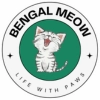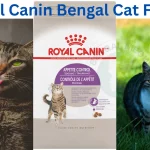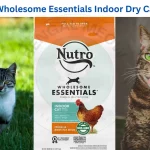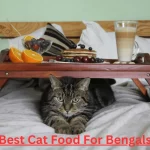Can Bengal Cats Eat Dry Food? Ultimate Guide
When it comes to taking care of your beloved Bengal cat, one question that often arises is, “Can Bengal cats eat dry food?” We understand that you want the best for your feline friend, and their diet is a crucial aspect of their overall health and well-being. In this comprehensive guide, we’ll delve into the world of Bengal cat nutrition and explore whether dry food is a suitable option for these majestic and energetic felines.
Understanding Bengal Cats
Before we clear into the specifics of their diet, let’s take a moment to understand Bengal cats. These stunning creatures are known for their wild appearance and active nature. Bengals are a hybrid breed, often resembling the beauty of their larger, wild cousins. They are playful, curious, and require a diet that matches their unique characteristics.
Bengal Cats’ Dietary Needs
Bengal cats have distinct dietary needs due to their active lifestyle and genetic heritage. Their diet should consist of high-quality protein to support their muscles and energy levels. Additionally, they require essential vitamins and minerals for optimal health. The type of food you choose plays a vital role in meeting these requirements.
The Pros and Cons of Dry Food
Can Bengal Cats Eat Dry Food?
The short answer is yes, Bengal cats can eat dry food. Bengal cats can eat dry food, but it’s crucial to choose high-quality options that prioritize protein content and quality ingredients. Dry cat food has its advantages, including convenience, longer shelf life, and potential dental health benefits, as the kibble’s texture can help reduce tartar and plaque buildup.
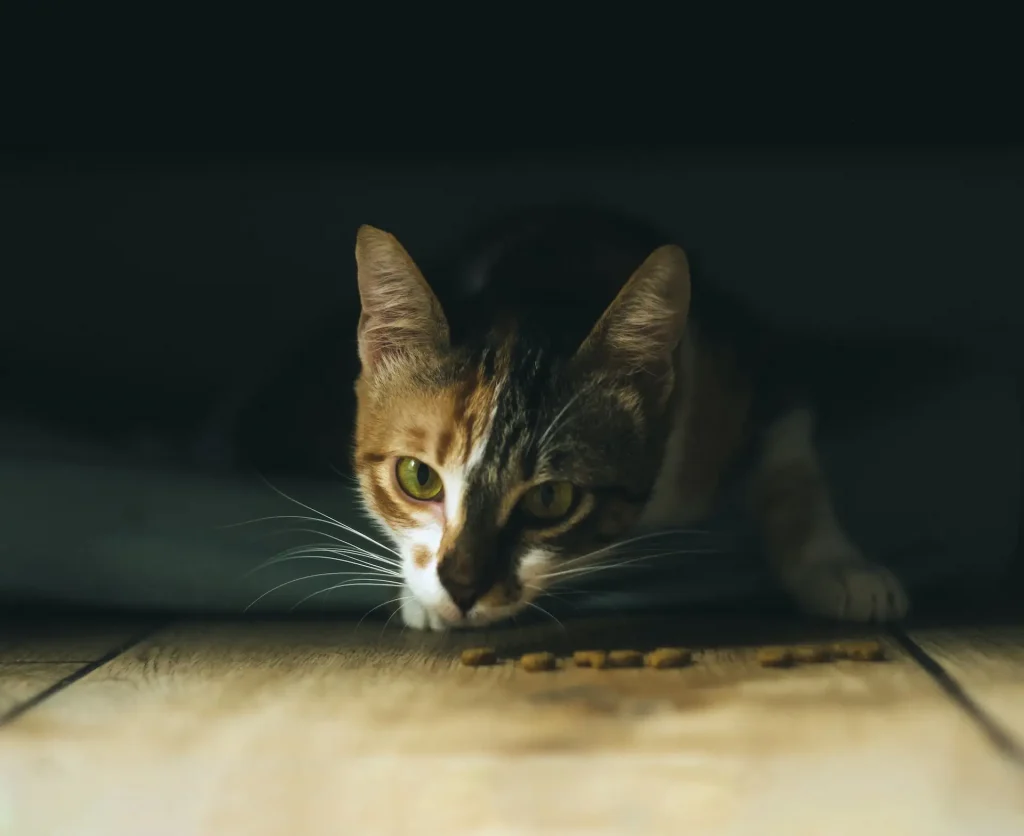
However, it’s essential to ensure that Bengal cats also receive adequate moisture in their diet, as dry food alone may not provide sufficient hydration. To make the best choice for your Bengal cat’s diet, consider their unique needs, consult with your veterinarian, and monitor their health closely to ensure they thrive on the chosen diet. There are both advantages and disadvantages to consider.
Benefits of Dry Food for Bengal Cats
Dry food can offer several benefits for Bengal cats when included as part of a balanced diet:
- Convenience: Dry cat food is convenient for both cat owners and their Bengal companions. It has a longer shelf life, doesn’t require refrigeration, and can be easily portioned.
- Dental Health: The abrasive texture of dry kibble can help reduce the buildup of tartar and plaque on Bengal cats’ teeth, promoting better dental health. This is particularly important, as Bengal cats can be prone to dental issues.
- Energy and Protein: High-quality dry cat food typically contains ample protein, which is essential for Bengal cats’ muscle maintenance and overall energy levels. It can provide a convenient source of essential nutrients.
- Weight Management: Dry food allows for precise portion control, making it easier to manage your Bengal cat’s weight and prevent overeating, which can be crucial in preventing obesity.
- Less Mess: Unlike wet food, dry food is less messy, making it a cleaner option for both feeding and storage.
However, it’s important to remember that while dry food offers these benefits, it should be part of a balanced diet that includes wet food and other options to ensure Bengal cats receive adequate moisture and a diverse range of nutrients. Consulting with a veterinarian is advisable to tailor their diet to their specific needs.
Read More 5-Ingredient Bengal Cat Raw Diet Recipe
Risks of Feeding Dry Food to Bengal Cats
Feeding dry food to Bengal cats has certain risks that cat owners should be aware of:
- Dehydration: Dry cat food contains very little moisture, which can lead to dehydration in Bengal cats. These felines might not drink enough water to compensate for the lack of moisture in their diet, potentially resulting in urinary tract issues.
- Urinary Problems: Bengal cats are predisposed to urinary tract issues, and a dry food diet can exacerbate these problems due to insufficient hydration. This can lead to conditions like urinary crystals or stones.
- Obesity: While dry food can aid in weight management when portioned correctly, overfeeding can still lead to obesity in Bengal cats. The carbohydrate content in some dry foods may contribute to weight gain if not monitored carefully.
- Digestive Issues: Some Bengal cats may have difficulty digesting dry food, leading to digestive problems such as constipation or diarrhea. This can be exacerbated if the dry food lacks sufficient fiber.
- Dental Health Concerns: While dry kibble can have dental benefits, not all cats may experience this advantage equally. Some Bengal cats may not chew their food thoroughly, limiting the dental benefits.
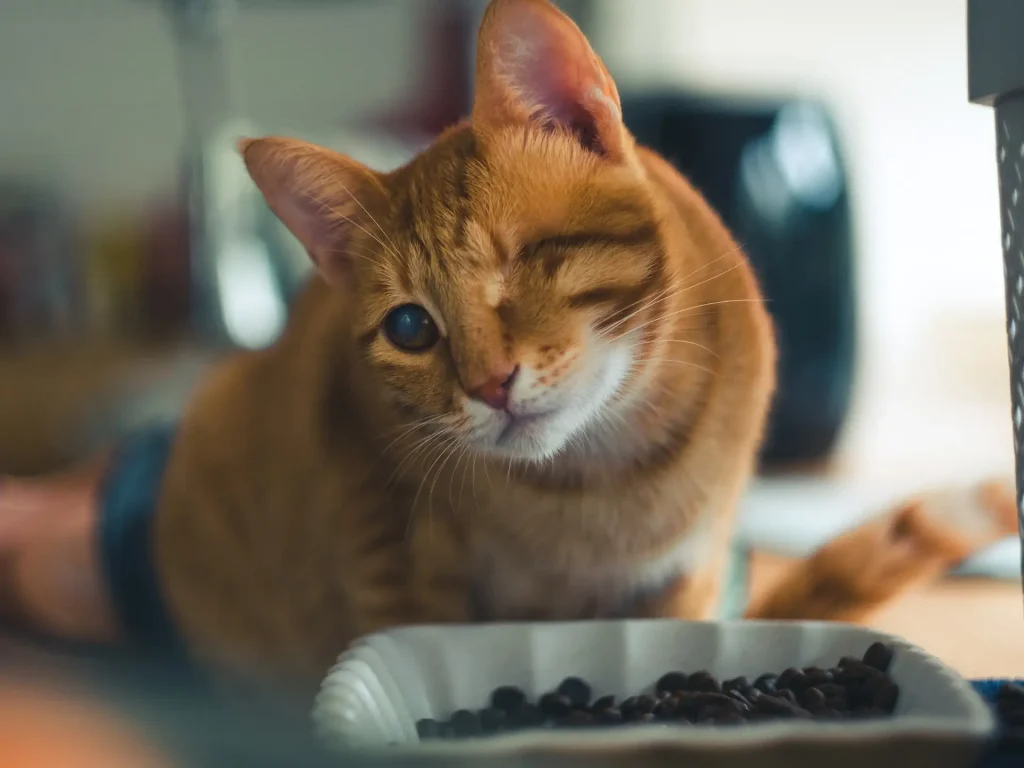
To mitigate these risks, it’s crucial to monitor your Bengal cat’s water intake, portion dry food appropriately, and ensure their diet includes other moisture-rich options like wet food. Consulting with a veterinarian for dietary guidance tailored to your cat’s specific needs is advisable.
Read Also Bengal Cat Raw Food Recipe
Guidelines for Feeding Dry Food
If you decide to incorporate dry food into your Bengal cat’s diet, follow these guidelines:
- Choose Premium Brands: Opt for dry cat food from reputable brands that prioritize protein content and quality ingredients.
- Monitor Water Intake: Ensure your Bengal cat stays hydrated, as dry food alone may not provide sufficient moisture.
- Portion Control: Be mindful of portion sizes to prevent overeating and obesity.
- Consult Your Vet: Always consult your veterinarian before making significant changes to your cat’s diet.
Alternatives to Dry Food
While dry food can be a part of your Bengal cat’s diet, it should not be the sole source of nutrition. Consider incorporating wet food and raw diets to provide a well-rounded and balanced diet that mimics their natural preferences.
People also like Can Bengal Cats Eat Raw Chicken?
Final Thoughts
In conclusion, Bengal cats can indeed eat dry food, but it should be part of a balanced diet that meets their specific dietary needs. Remember that every cat is unique, so it’s essential to monitor your Bengal cat’s health and adjust their diet accordingly. By providing a mixture of high-quality dry food, wet food, and other options, you can ensure that your Bengal cat stays healthy, active, and happy.
FAQs
1: How often should I feed dry food to my Bengal cat?
Feeding frequency can vary, but it’s generally recommended to feed your Bengal cat dry food in moderation, ideally once or twice a day, alongside other dietary options.
2: Are there specific brands of dry food recommended for Bengal cats?
While specific recommendations may vary, look for brands that prioritize protein content and quality ingredients. Consult your veterinarian for personalized recommendations.
3: Can Bengal cats be exclusively fed dry food?
While it’s possible, it’s not ideal. Bengal cats benefit from a diverse diet that includes wet food and other options to ensure they receive essential nutrients and moisture.
4: Should I consult my vet before switching my Bengal cat to dry food?
Absolutely. Consulting your veterinarian before making any significant dietary changes is essential to ensure it aligns with your Bengal cat’s specific health needs.
5: What are some signs that my Bengal cat may not be tolerating dry food well?
Watch for signs like increased thirst, urination, or weight gain, as these could indicate that your Bengal cat is not tolerating dry food well. If you notice any unusual symptoms, consult your vet for guidance.
